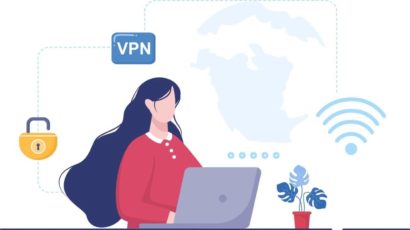YouTube changed the internet game for everybody when it came online. It allowed us to watch a video without downloading the whole file into our hard drive beforehand. It turned video streaming into an everyday thing instead of a toy for the geekiest. That’s why Google immediately saw the potential in the new video streaming platform and bought it as soon as it could. And the rest, as they say, is history.
Streaming sites and watching video streams have never been more popular than today after the pandemic has forced so many people worldwide to stay home without much hope to attend theatres, stadia, or any mass entertainment. The Tokyo Olympic games, for instance, have just ended. They will be known as the “streaming games” in history because attendance was forbidden except for the press.
As a result, most enthusiasts followed their favorite Olympic events through YouTube instead of their TVs.
Streaming is here to stay undoubtedly. It’s bigger than ever; it will only keep growing even the pandemic gets resolved. Even once we’re back to normality (if that should ever happen), the millions of new streaming users the industry seduced over the last two years will not forget how convenient it is to get their favorite movies or TV shows delivered to their tablets, phones or desktop computers with only a few clicks.
Nevertheless, there is a tool that improves your streaming experience markedly. It’s the virtual private network (VPN). Yes, the point of VPNs is to protect a user’s privacy and anonymity when online. But it’s also true that streaming through a quality VPN for streaming can help you unlock all the goodness otherwise unavailable to you from your favorite provider — more on that later.
However, not all VPNs are optimal for streaming purposes. Even some of the best VPNs in the industry can’t deliver a good streaming experience. That’s because each VPN prioritizes a feature over all others. For example, some providers will focus on delivering high transfer speeds without compromising security.
Some others will go for protection all the way, encrypting the traffic in question more than once, routing it through more than one server in the VPN network, and adding other perks that will make the service’s security fantastic, but that will cost the user in terms of transfer speeds thus making it impossible to support a video stream.
If you are reading this guide, the chances are that you already know that you need a VPN to enhance your streaming experience and that not just any VPN will do the trick. So which are the ones that will work? This guide will tell you the five best VPN providers that will give you a perfectly safe and anonymous online presence while also giving you all the features you need to improve how you watch your online entertainment.
The best VPNs for streaming at a quick glance
If you are in a rush, these are the best VPN services for video streaming, no matter wherever you are in the world:
- NordVPN – A long-time favorite powerful and reliable service.
- Surfshark – The new kid in town offering the best deal in the market.
- ExpressVPN – Secure, fast, and user-friendly.
- PrivateVPN – A well-balanced option that offers everything you need at competitive prices.
- IPVanish – The torrent-friendly VPN that is also a good choice for video streaming.
What makes these VPNs the best for streaming?
We tried several of the industry’s leading VPN services to find the best five options. Here are the criteria we used to tell the boys apart from the men:
- The ability to unblock restricted content in sites like US Netflix.
- Speed and reliability. Enjoying a movie needs a service that can sustain a fast connection for at least two hours continually.
- Good technical support. Most VPNs services are pretty straightforward, so that most users won’t need much assistance. But when you need it, technical support must be swift, reliable, and accurate.
- User-friendly apps that are available on a variety of streaming devices.
- Excellent performance in every device supported by the VPN.
- The ability to do everything that a premium VPN service should do, not just supporting video streams.
So that’s how we researched the market’s VPNs to shortlist the 5 best VPNs for video streaming. Let’s talk about each of our picked providers in detail.
Best VPN for streaming in 2022 (the detailed analysis)
1. NordVPN

With thousands of fast-speed servers distributed globally, NordVPN always succeeds in evading the most aggressive VPN blocks by any streaming website.
Pros
- One of the fastest VPNs around
- 24/7 customer service
- Easy to use
Cons
- Extra features are bit complicated
NordVPN is always our top recommendation for any task needing a VPN. It’s earned that excellent reputation by providing a great service at a relatively low cost. In fact, NordVPN is the preferred VPN service for most reviewers on the web when it comes to streaming or any other task, so it’s very much like ExpressVPN in that regard, only cheaper.
The NordVPN network includes 5,000+ nodes in 60 countries, so you’re bound to find a good server near you wherever you are in the world. Furthermore, for streaming purposes, you sometimes need to have a server in the correct country so you can unblock a specific media catalog. In that regard, NordVPN will serve you well, too, because it has nodes everywhere, and all the nodes have the high bandwidth they need to perform as if they were located in close proximity to you.
So, what sites can you unlock with NordVPN? All the major Netflix catalogs, for a start. Also, Hulu, BBC iPlayer, and Amazon Prime to name the industry’s more prominent players, but you will also be able to use many other streaming services that are not as famous.
Do you want to see your video content on your computer, tablet, smartphone? Ok, but what about Android TV boxes, Smart TVs, Amazon FireSticks, and Fire TV? Well, NordVPN will do those tricks for you as well. The Amazon store even features a dedicated app to use a VPN and Fire TV in tandem.
As with the previous options, I also paid attention to the VPN’s security features that are expected from a service like this and that are not necessarily vital for streaming. NordVPN excels at them as well.
NordVPN is headquartered in Panama, a country as friendly to privacy as the British Virgin Islands (where our two previous VPNs are located). It keeps no logs at all. Every single one of the networks’ 5,000 servers runs in a dedicated hardware RAM disk which allows for a fantastic performance in every node.
NordVPN is audited regularly because of the prominent place it holds in the VPN environment, and it always passes with flying colors. Among the most recent audits, the ones held by VerSprite and PWC AG confirm the lack of data collection of any kind by the VPN’s servers.
And there’s even more. NordVPN offers CyberSec, a software that blocks ads, stops trackers and protects you from malware-rich websites. A double-VPN server option is also available (which, again, we don’t recommend if you want to keep your streaming, videos displaying smoothly). In addition, it supports TOR-over-VPN, so you can have all the privacy blessings that come with TOR enhanced by your VPN services. And, as SurfShark, your traffic in NordVPN is obfuscated — made to look like regular HTTPS traffic instead of VPN traffic.
Every option in my best VPN for streaming list supports high streaming speeds, of course. Otherwise, you could not use them for video streaming at all. But NordVPN stands out from the rest, even ExpressVPN because it has the highest speeds we’ve found so far in any VPN network.
So the network’s speeds are excellent. NordVPN is also very reliable. Those two features make it an ideal choice for streaming or any other online activity that needs high bandwidth.
The customer support is also excellent. The live 24/7 chat is always ready to answer your questions, and you can access it directly from the website. For example, suppose that you want to know the server that will work best if you’re going to stream content from a given website or country. You can open the live chat, ask your question, and have it answered in a matter of minutes.
Last but not least, NordVPN also offers a 30-day money-back guarantee so you can try out the service for a month before you make up your mind. And since we’re talking money, the more extended plans will give you substantial discounts on your monthly costs.
NordVPN is a great option. Undoubtedly one of the best VPNs in the world if you want to unlock video streaming services around the globe safely.
2. Surfshark

From a huge server network to fast connection speeds, this new kid in the block has everything you want for non-stop streaming.
Pros
- Affordable pricing
- Advance security features
- Allows torrenting on many servers
Cons
- Takes time to connect to some servers
Surfshark is one of the best VPNs for streaming. If you’re reading this guide, you probably already searched the web for the best streaming VPN. If that’s the case, you surely noticed that the field is thoroughly overcrowded. Lots of new VPNs have popped out of nowhere over the last few years. In this environment, it’s tough for any single VPN to stand out for the rest. However, our five top choices do stand apart from the competition, especially SurfShark.
Considering that Surfshark came online only in 2018, it’s remarkable how quickly the service has positioned itself as one of the world’s best VPNs, competing with brands that have been around for a decade or more. As a result, this new kid on the block’s disruptive power has shaken the market.
SurfShark’s option stands out because it’s very cost-effective while offering almost every feature that the market’s premium service will give you. For example, your monthly cost could be 6.49 USD if you choose the 6-month plan and even lower if you go for a more extended plan — how does 2.49 per month sound to you?
3200 servers scattered over 65 countries make for an extensive VPN network that holds the fast speeds you need to support HD video streams. In addition, Surfsharks’ WireGuard VPN protocol allows it to perform even better than ExpressVPN (something I rarely find).
With Surfshark, you will gain the ability to unblock twenty regional Netflix catalogs — and the list keeps growing. Of course, Netflix is an important streaming site, but not the only one, so SurfShark wouldn’t be such a good option if it didn’t work with many other platforms. And it does.
So the features relevant for streaming like high transfer speeds, site unlocking, and server availability are great in Surfshark. Still, since it’s a VPN, you have to wonder how it performs in the more “traditional” tasks you could expect from a VPN. In this regard, Surfshark gets some of the industry’s higher scores in every possible category in several audits carried out independently.
And there are even more perks for you to enjoy with Surfshark. For example, the CleanWeb feature will block annoying ads (the bane of so many streaming services), you can use Double-VPN servers so that your traffic gets two encryption layers for added security and anonymity (though we don’t recommend you to try this option for streaming as the additional computing power needed will reduce your transfer speeds thus possibly ruining the streaming experience), obfuscation that makes your VPN traffic look as everyday HTTPS traffic, and WireGuard support for mobile and desktop OSs (but not Linux, which is funny as Android is a Linux distro, but that’s life).
If all those features have not persuaded you yet, we left a great one for last: Surfshark allows an unlimited number of concurrent connections protected by the network. This is an almost unique feature in the industry as most other services will allow from five to ten connections, not just any number.
3. ExpressVPN

This resilient VPN provider takes pride in offering blazing fast servers and over 100 locations on its network, thus serving as the best streaming VPN.
Pros
- Works good in China and UAE
- Excellent blocking capabilities
- Strick no-logs policy
Cons
- Prices are above from affordable range
ExpressVPN has been a respected name (maybe the most respected one) in the industry for a very long time. Our experts are not alone. Plenty of other reviewers on the web also prefer this service for excellent reasons. In fact, the comments you find on the web about ExpressVPN are so favorable that you wonder if they’re too good to be true. They’re not; this provider is just that good.
ExpressVPN supports fast connections with complete reliability. In addition, it successfully unblocks websites like Netflix and other streaming platforms without problems, so you can get the premium access you want if you choose a server from the correct country (which is usually the US).
The network is extensive as it spans 94 countries and thousands of nodes. However, the sheer size gives it an edge over the competition because it guarantees every user’s high-quality coverage. I would typically state that the number of nodes in a VPN network is not as crucial as each server’s bandwidth and computing power. However, ExpressVPN gives you both features in a single package, making it very hard to beat.
One crucial task you need from the best streaming VPN in the market is the ability to unblock Netflix’s entire catalog. ExpressVPN delivers this, but it also performs with Amazon Prime, Hulu, and many other streaming platforms on the Internet that are not household names yet.
This provider supports almost every operating system with apps that facilitate your streaming experience. That in itself is great. But when you’re thinking about streaming, specifically, the network includes the MediaStreamer DNS service, enabling you to see your streams on your Smart TVs.
So ExpressVPN excels as one of the best streaming VPNs in the world. However, the features it offers as a traditional VPN are also top-notch. It’s probably not the most advanced platform for being at the VPN technology’s cutting edge, but it’s effective and efficient like no other competitor.
The VPN is incorporated in the British Virgin Islands, which is a privacy-friendly jurisdiction. This is not just a trivia fact. Suppose you care about your privacy and anonymity. In that case, it’s essential to have a service located in a country that will not force your provider to surrender your information at some point in the future. But if that should happen, the next question would be: what kind of information could your VPN give away about you?
Well, if the VPN is ExpressVPN, the answer is almost nothing. That’s because this service announces and practices a strict no-logs policy. It only retains as much information as it needs to keep the network going and the user accounts functional, but it doesn’t save any information about your online activities. So it can’t spill the beans on you, even if it had to.
The service’s high quality makes it unlikely that you will need a lot of tech support. But if you should need some, ExpressVPN’s is among the best in the industry. For example, I couldn’t connect to one of the streaming services, so I went to the 24/7 live chat support for help. In a few minutes, the personnel diagnosed the problem correctly and helped me set everything back on track.
Last but not least, ExpressVPN includes a 30-day money-back guarantee, so you can try the service to your heart’s content for a whole month without risking any money. Then, if you want out, you just let them know, and your fee will be refunded, no questions asked.
ExpressVPN’s fees are slightly higher than the market average (around 10USD monthly), but this is a case in which you pay more for a service that gives you more. The apps are user-friendly, split tunneling is available and independently audited frequently to guarantee its quality.
4. PrivateVPN

A well-maintained and decent option recommended for any type of streaming from the US, UK, and other popular content libraries.
Pros
- Remote control support
- Allows torrenting
- Zero-logs policy
Cons
- Narrow range of servers
The best options I’ve described so far are excellent VPN services built to perform well at any task. They do well as streaming VPNs because they’re meant to excel at everything, but streaming is not the core objective of any previous VPNs. This is what makes PrivateVPN different.
The PrivateVPN network includes a hundred servers in 63 countries. That is not too impressive when you think about ExpressVPN or NordVPN, which have thousands of nodes. But PrivateVPN has something you can’t find in either of the other two networks: streaming-optimized servers for the most prominent video streaming platforms, including Netflix.
Hulu, Disney+, Amazon Primer, BBC iPlayer, and Netflix are some streaming platforms that this VPN will easily unblock for you. The optimization for streaming is evident because I could have HD streams from servers quite far from me in places like Vietnam or Brazil.
PrivateVPN allows for six simultaneous connections. The servers work fine with Windows, iOS, iPhones, and Android.
Pricing is also an attractive feature in PrivateVPN. You could pay as low as 2 USD monthly if you choose one of the more extended subscription plans.
As it happens with the best providers, PrivateVPN keeps no logs and is privacy-friendly overall.
As I stated earlier, the network is not so extensive, yet the transfer speeds are good enough for streaming.
Maybe the one thing about PrivateVPN that is not on par with the industry’s best is the customer service. I found it to be inconsistent. On the other hand, the apps and the services are friendly enough to find that you don’t need any extra help. But if you do, don’t expect too much. Another drawback is the lack of Smart DNS or VPN browser extensions (which are on offer for the other options).
5. IPVanish

A privacy-friendly VPN that unblocks almost every streaming site. Its massive server network, thousands of IPs, and stable connections ensure you enjoy lag-free streaming.
Pros
- Low prices
- Unblock many streaming sites
- Router installation guides
Cons
- No 24/7 chat support
IPVanish is a well-known VPN service with much to offer. It’s good enough to make my top five best VPNs for streaming, but it’s also the one on the list with the most weaknesses that new users shouldn’t overlook.
IPVanish is suitable for streaming, especially for Netflix, because most of the network’s US servers will unblock the site successfully. But if you’re fond of Disney+, Amazon Prime, or BBC iPlayer, the news is not so good as you won’t be able to unlock the content.
On the other hand, Kodi, Firestick, or Amazon Fire TV work very well with IPVanish.
IPVanish speeds are excellent when you choose a local server or at least one physically close to you. But even the servers that are not exactly around the corner from you will support speeds high enough for you to watch your video streams comfortably. In addition, speed losses in IPVanish are as low as 10% compared to open traffic, making it one of the best VPNs I’ve ever seen in this regard.
Additionally to the high speeds, the network is stable and reliable, which are necessary conditions for a good streaming experience.
The network spans 75 locations and 2,000 servers. That’s big but not great as ExpressVPN or NordVPN have four or five times greater networks. But it has more than 500 servers based in the US alone, which is relevant when streaming is a priority because so many streaming giants are found in that same country.
IPVanish keeps zero logs, which is something I always want in any VPN provider.
The problem with IPVanish is that it’s based in the US, which, outside the world’s totalitarian states, is probably the most privacy-adverse jurisdiction on the planet. Because the service keeps no logs at all, its location alone is not a deal-breaker in itself, but still something you should keep in mind if your privacy is a top priority.
The features IPVanish offers as a traditional VPN are excellent as well. Encryption is the industry’s standard; it’s built around the OpenVPN protocol — which is open-source and, hence, very closely monitored and audited by several independent observers.
IPVanish supports macOS, iOS, Android, Linux, Windows, and routers, so there’s no toy in the world that you can’t use with this VPN. The configuration is easy, and you can have as many as ten concurrent connections to the network.
For years, IPVanish has earned a reputation as an excellent VPN service for torrent users. Since streaming and torrenting need so many of the same features, one would think that any VPN that performs one of those tasks well will also be good at the other. Unfortunately, that’s not always the case, but IPVanish delivers high performance on both.
The platform includes apps for both iPhones and Android and even SmartTVs.
However, if you need a service that will help you in China or another highly-censored jurisdiction, IPVanish won’t be the thing. Users report that the apps don’t work there, and the company’s domain name is blocked.
VPNs that we do not recommend for streaming
Two things define an excellent VPN service: hiding your IP address to the Internet and encrypting all our traffic. Notice that streaming videos is not one of those two things.
Hence, as we stated at the beginning of this article, plenty of good VPN services are not suited for streaming. Conversely, other services will give you a good streaming experience, but that will not unblock geolocations in the servers or protect your privacy.
It’s all about priorities. For example, some VPNs want to ensure they get privacy right at any cost, which diminishes their capacity to offer high-speed connections that can support streaming and vice versa.
So if you want to protect your privacy and use streaming services at the same time, these are some of the VPNs you should avoid:
Hotspot Shield, free version
Free VPNs are to be always avoided at all costs. They do not protect your privacy (on the contrary, they make a buck by tracking your activities and selling your data) and their connections speeds tend to be very low. Hotspot Shield‘s free VPN service is an exception in that it doesn’t add to your privacy worries because Hotspot Shield is one of the industry’s top networks.
The problem with the free version is that your data is capped at 500 MB. That amount of data will get you about half an hour of video streams in SD every day. So if you’re into binge-watching, this is not the service for you.
TunnelBear, free version
TunnelBear unblocks Hulu. And only Hulu. Also, the free version gives you 500MB monthly. So, unless you are happy with 30 minutes of video per month exclusively from Hulu, you will need a different vendor.
CactusVPN
The problem with CactusVPN is not that it doesn’t work to see streaming videos. Instead, it only works if you switch that traffic to the unencrypted DNS in the network. Thus you are paying for a service that is supposed to encrypt all your traffic but giving up that feature voluntarily to watch your videos. It’s pointless. On top of that, I could not unblock Netflix using this VPN.
Is it legal to use a VPN for streaming?

Using a VPN to access international content websites is perfectly legal in the US, UK, and most European countries. You will face no legal liabilities by watching your streams through a VPN.
VPNs, of course, allow users to bypass geolocation restrictions which seems to be similar to piracy in many users’ minds. This is not an issue. Piracy involves accessing copyrighted material without having the right to see it or use it (a right usually acquired by paying for it). If you are using Netflix or any other subscription platform, you are indeed paying for the content you’re using, wherever you are. So you’re not a pirate.
So VPNs won’t allow you to get free access to otherwise paid content. Instead, they will just unlock some content unavailable to certain countries. While this is undoubtedly against the terms of use of many streaming platforms, it’s not illegal at all.
What is the best free VPN for streaming?
The short answer is “none.” But keep reading if you want the details.
Most of the free VPNs on the Internet won’t work at all with streaming services because they don’t have enough bandwidth to support video streams, so even trying is a moot point for the most part.
The very few free VPNs that can sustain a video stream have caps on the amount of data you can use. So even if you can watch a video with those services, you won’t be able to see more than 30 minutes daily, or even monthly.
Also, most free VPNs are not safe. The primary point in a VPN is to protect your online safety and anonymity — being able to unblock streaming sites is a nice collateral effect, but not the service’s mission. If you’ve seen the details we’ve provided about the services we recommend, you’ve seen that a good VPN needs to have many servers in many countries.
That costs money which paid VPNs gather from their subscription fees. But how can free VPNs afford to keep their networks online without charging you for the service? I will tell you in a moment, but before that, pay attention to another thing: throughout the article, I have insisted on how important it is for a VPN to keep no logs at all about its user activity. And that’s another problem with free VPNs.
Free VPNs do keep logs on your activity. Very detailed records that they will never delete. That’s how they make their money. They collect all this information about you and the other users they serve and then sell it to their commercial partners, who can make sense of all that information and make it profitable.
In other words: in free VPNs, your privacy protection is no the product on offer. You and your online activities are the product on offer. Consider that if you’re still not persuaded that you should pay a subscription for a premium VPN.
All that being said, there is a free VPN deemed safe for streaming, which can unblock several platforms. It’s Windscribe Free.
What is SmartDNS?
A SmartDNS is a thing that takes your DNS request and sends it to a DNS server overseas. It does not scramble your traffic, and it does not hide your IP address. What it can do for you is to enable you to gain access to websites and services that won’t allow traffic from your country or that offer it a different, usually diminished service. That will happen because those websites will think you are coming from the country where the DNS request originated.
Smart DNS is an alternative tool that bypasses geolocation restrictions when you can’t use them with a native VPN application. If your VPN supports Smart DNS, all you need to do is update your device’s DNS settings with those provided by your VPN.
There is no easier or more straightforward way to unlock restricted content in gaming consoles and Smart TVs than Smart DNS. It’s quick; it’s easy, it doesn’t affect your transfer speeds because there’s no encryption involved. But not every VPN includes SmartDNS among its features. However, two of the options described in this article (ExpressVPN and SurfShark) have Smart DNS, and both unlock the most important streaming services and many others.
But do not forget that using a full VPN to watch your video streams is always the best option. Yes, Smart DNS will unlock the websites for you, but it won’t protect your privacy or anonymity. The VPN is always more reliable; it encrypts all your traffic and hides your IP address. And the VPN also beats Smart DNS at its own game. Smart DNS will typically be suitable for US or UK websites only, while a good VPN will allow you to take an IP address from any country in the world where it has a server.
Are there some VPNs that are unsuitable for streaming?
Yes, many.
Most free VPNs are terrible streaming choices. Their speeds are low, and they have a data cap, not to mention the privacy nightmares they involve.
That doesn’t mean that every paid VPN service in the market is suitable for video streaming. There are some premium, very advanced VPN services whose sole focus is on enhanced privacy and anonymity. They add extra encryption layers and other features that secure your data beyond your most paranoid dream, but they cost in terms of computing power and transfer speeds, thus slowing things down.
Streaming HD video content through a VPN needs a reliable network and has fast speeds at the international level. Unfortunately, building and maintaining a network like that takes a lot of expertise and money, which is why many VPNs that are good enough for many everyday tasks fail when it comes to streaming video.
With all that in mind, it’s no surprise that VPNs not suited to support video streams are more of a rule than a rarity. That is why the better question to ask is “what are the best VPNs for streaming” which we answer in this article. Nevertheless, here are a few well-known VPN providers that don’t work well for streaming:
- Perfect Privacy
- Avira Phantom
- Trust Zone
- TorGuard
- AirVPN
- TunnelBear
In any case, the five options we describe in this article are thoroughly tested and will give you the best possible streaming experience.
What about Kodi? Can I use a VPN to stream with it?
You can, and you probably should.
Kodi is a streaming media player with millions of users worldwide. The Kodi technology includes free add-ons that allow users to watch streams for sports, movies, and TV shows.
Some of those add-ons stream copyrighted material. That can be bad news. Some ISPs will fine Kodi users or block Kodi traffic to prevent copyright infringement. So if you want your ISP to leave you alone with your Kodi, you need a VPN for Kodi that will scramble your traffic so your ISP can’t identify it correctly.
Conclusion
Entertainment delivered by a streaming platform is a sign of our current times. But, of course, there’s nothing wrong with it in itself, and the pandemic has only turbocharged the demand for movies, sports, and TV shows delivered through a data stream instead of a downloaded file or physical media such as a DVD or a BR.
Think about the Tokyo Olympics. They will be remembered as the “streamed games” as so many people worldwide saw them on their phones through YouTube instead of the time-honored tradition of turning a TV.
Streaming video, however, is not the only sign of the times we have to accept and deal with. Online privacy and anonymity are also rising priorities. Edward Snowden’s revelations played a role in making the public aware of confidentiality. Still, the pandemic has also been influential as we’ve seen how digital crime has exploded since the Covid-19 virus has forced millions of people to stay at home.
Using a VPN to stream your preferred videos on the Internet gives you the best of both worlds as you can keep enjoying the shows, movies, or matches you want while being perfectly anonymous online.
But there are added perks in the combination of VPN and streaming services. For example, a good VPN will hide your IP address and exchange it for the address of the network server you’re using; it enables you to pass for a user living in another country. Your streaming platform will thus offer you the content intended for that particular country instead of what you should be getting otherwise. This is exceedingly useful.
So the advantages of using a VPN when using your favorite streaming service are not only technical or political. It also expands the spectrum of entertainment you can get by allowing you to access content intended for users in other countries.
What is the catch? There is none. Yes, a good experience with a streaming service needs a paid VPN service. But 10 USD a month is not so much, and if you go with one of the five choices we’ve listed here, you can be sure that the VPNs will only make your streaming experience so much better.
So enjoy your favorite content streaming and keep safe!






